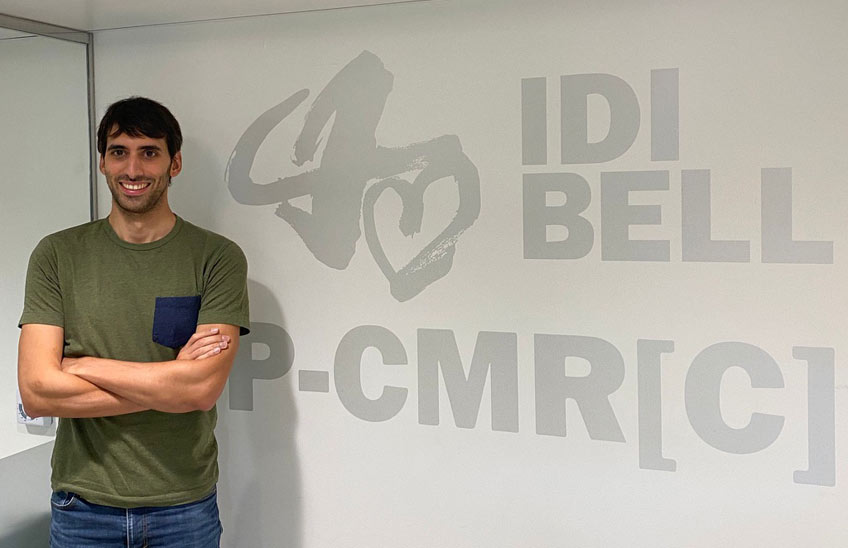The European Hematology association awards a scholarship of research to Oskar Marín, biochemist from Navarra.
The Pamplona native, former student of the University, receives an subsidy of 50,000 euros that will go to employment of a technology that allows to detect the gene expression of each cell.

FotoCedida<br>/Oskar Marín, en la sede del Instituto de Investigación Biomédica de Bellvitge (IDIBELL) en Barcelona.
20 | 01 | 2022
association The European Hem atology Association (EHA-) has awarded a scholarship of research to the biochemist Oskar Marín Béjar (Pamplona, 36 years old). Through this subsidy, this European organization finances ambitious research projects that generate innovative data to initiate a scientific degree program as the main researcher .
"In my postdoctoral experience abroad I demonstrated that I can lead projects and teams. Thanks to this achievement, I have shown that my ideas are recognized as innovative by a committee of experts, and that I am able to attract funding," notes Dr. Marín Béjar.
This grant has a duration of one year and the subsidy amounts to 50,000 euros, funding that will be used "for the use of a novel technology called 'single cell' that allows the detection of gene expression in each cell individually".
The Navarrese researcher hopes that in the medium term deadline his research will have an impact at the clinical level. Although it is an individual grant, "the research is synonymous with cooperation and, therefore, it will have a positive impact on the whole team and, hopefully, in the short-medium term deadline on the clinic and patients," he points out.
A scientist from Navarra with a promising trajectory
Oskar Marín studied Biochemistry (2009) and the doctorate (2015) at the School of Sciences of the University of Navarra. In 2021 the European Commission awarded him a postdoctoral scholarship within the Marie Curie program for his excellent scientific career.
Dr. Marín Béjar is currently doing his research at high school de research Biomedica de Bellvitge (IDIBELL) in Barcelona, in the field of myelodysplastic syndromes and acute myeloid leukemia (MDS/AML). Specifically, his study has focused on a subtype of this disease where the germline (familial) mutation of the GATA2 gene predisposes to develop MDS/AML.
"My research focuses on discovering the molecular mechanisms of the tumor cell, whose information is not written in the DNA (genetic material). For example, identifying the roadmap (genes expressed at the same time) that the tumor cell develops to become more malignant. The great novelty of this research is that novel techniques will be used to study the transcriptome and genome at the individual cell level in patient samples and in in vitro models of stem cells that 'mimic' the development of the disease in a cell culture laboratory ," he concludes.
